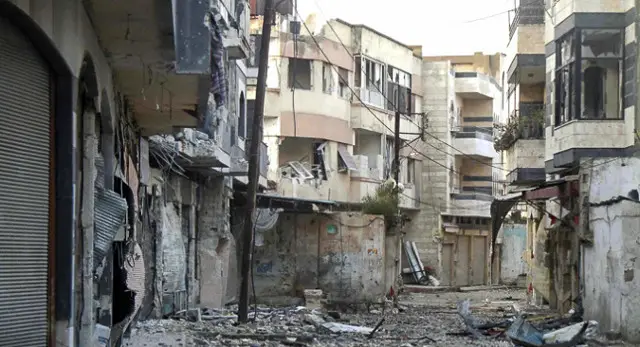This in from Andrew Turner’s office, in their own words. Ed
The Island’s MP Andrew Turner has said that he is not yet convinced by the arguments made in favour of Britain taking part in airstrikes on Syria. He spoke in the Commons yesterday during a debate on the situation in the Middle East to set out his concerns.
Speaking today (Tuesday), he said that as things stand he will not be voting in favour of the motion which is due to come before the Commons tomorrow.
“The first duty of Government is to protect its citizens, but taking us into war is the most difficult decision for any Government. And the most difficult decision for MPs, who must consider very carefully whether they support that decision. I am not yet convinced.
“It is widely accepted that this fight cannot be won from the air, boots will be needed on the ground – and the Prime Minister has ruled out those being British. The plan relies on 70,000 so called ‘moderates’ in Syria; but they are fragmented forces, many fighting each other, and some hate President Assad more than they hate ISIL. It seems to me that to make progress credible forces must move quickly into place to back up airstrikes. I have seen no evidence that will happen, and a vacuum could be created leading to even more chaos.
“It is also a concern that not all nations ‘on our side’ are committed to the same military tactics. Russia opposes ISIL but supports Assad and that has led to airstrikes on the very people, the 70,000 fighters, we are relying on to unite and overthrow ISIL. We need a coherent strategy shared by all involved in the fight against ISIL.
“As things stand I do not see that I can vote in favour of involving Britain in further military action in the Middle East, although I am still listening to the Prime Minister and colleagues with a wide range of experience and views. I also welcome hearing the views of Islanders. We must learn the lessons from Iraq, from Afghanistan and from Libya. It is a very difficult decision, because I believe we should stand by our traditional allies, and we must a find a way to deal with the undoubted threats that ISIL poses. There is no right, easy or clear-cut conclusion, but at the moment I feel that opposing airstrikes is the ‘least worst option’.”
Extract from Hansard yesterday:
Mr Andrew Turner (Isle of Wight) (Con): Four out of four of our speakers have been brilliant. My contribution will be a little more modest.
I have two problems with the proposed intervention in Syria, but that is not to say that the Government do not care, and that nothing has been done to engage the support of Members on both sides of the House. This is the result of careful thought over a number of years, not a conclusion that we have come to over the past two or three weeks. We recognise the appalling nature of the attacks in France, just as we recognise the attacks in the Lebanon the previous day, the earlier attacks on a Russian aeroplane, and, before that, the attack on the beach in Tunisia.
The question is not how we deal with these attacks today or tomorrow, but how we solve the problems of ISIL on a long-term basis. First, we must not find ourselves using boots on the ground. This matter is not something that can be solved by Britain, the United States, Russia or France. The Prime Minister has made it clear that our boots are not to be used in Syria, nor are those of any westerners, which, for the moment, include those of Russia.
Bob Stewart (Beckenham) (Con): I am always extremely worried when someone makes a definitive statement that says that we will not use our armed forces to defend our interests.
Mr Turner: I can well understand my hon. Friend fearing that, but the Prime Minister himself said that we shall not have boots on the ground.
Where are those supporters coming from? We are not speaking about one army under one general but several different factions, some of which are competing against each other. We cannot repeat what happened in Libya. It is not clear whether these factions, which the 70,000 Syrian fighters comprise, are organised and prepared to act, and whether they can move into ISIL ground quickly, because otherwise new criminals will arrive and appear as soon as the old ones are destroyed. The support needs to be reliable and sustainable. How can we be sure that these are forces to count on?
There is not one clear enemy to fight. The Russians appear to support Assad while we support rebel fighters declared as “moderate”. Russia’s support of Assad has resulted in strikes hitting the moderates. If there was an agreement with Russia, it would be much nearer what we are aiming for. If there was agreement from Syria—from the moderates and the Assadis—it would form a united front. I believe that a successful fight against ISIL is possible only when everyone on the allied side works together to defeat them.
Image: Freedom House under CC BY 2.0





